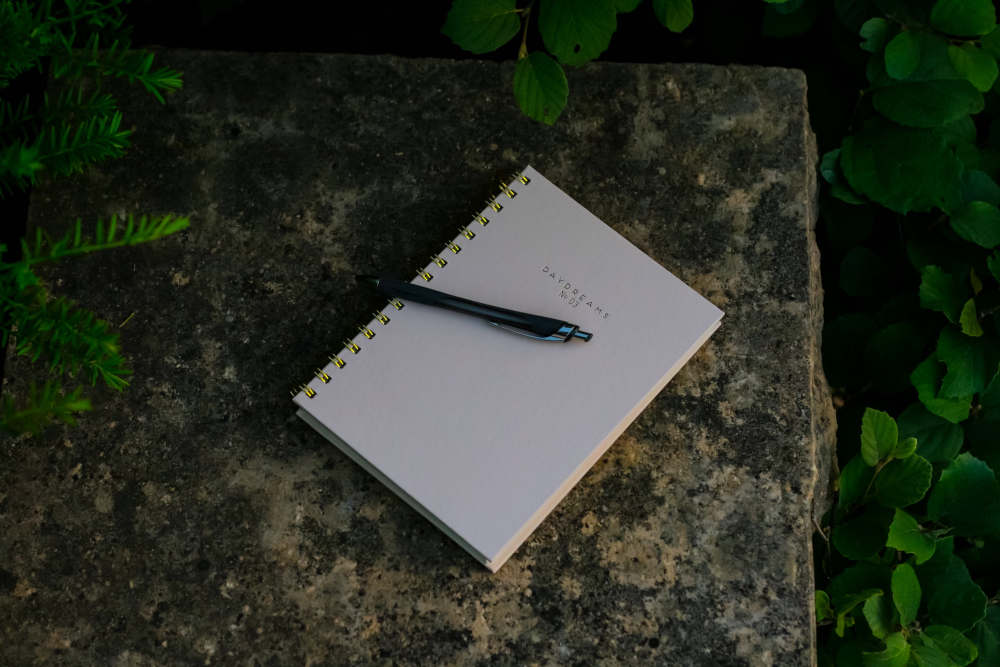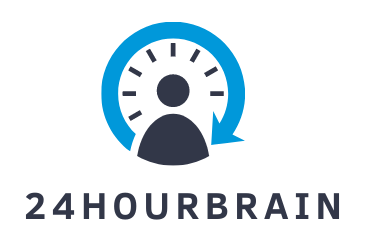You have the feeling that you no longer do yourself justice because of the stress of everyday life, but you can’t find a way to slow down and give your life a new direction?
Then journaling can be beneficial. The mindfulness method assists you in consciously perceiving your days, achieving your goals, and becoming more relaxed. Read about how journaling works and the benefits it provides.
You are aware of the situation? A new notebook is in front of you, ready to be filled with your brilliant ideas and thrilling experiences.
You fill the pages with zeal, have something to say every day, but after a few days, the pages are empty.
The diary is in the back of the drawer, slowly fading into obscurity. We quickly realize that keeping a diary is simply not for us. Is this, however, true?
Everyone has been talking about journaling lately. There are many ways to do this, such as writing your thoughts in a bullet journal, starting your day with a 5-minute journal, or using journal prompts to go deep into your mind.
Have you ever wondered what all the fuss is about? Is it just a fad, like yoga and green smoothies, or is it a psychologically beneficial tool?
Whether you’re new to journaling, a skeptic, or have years of experience and are looking for new inspiration, this article will show you that journaling is more than just your decade-old diary:
In particular, it is a versatile method for personal development.
With a few pointers from us, you’ll be able to start your own journal and tailor it to your specific needs.
Because keeping a journal is a great way to learn more about yourself, see patterns in your thoughts and actions, and keep track of your growth.
What Exactly Is Journaling?
The goal of journaling is to increase self-awareness and joy in your life. To do this, you write down your thoughts and feelings on a regular basis, allowing you to consciously reflect on what makes you feel good and what makes you feel uncomfortable or even unhappy.
Many examples of coaches who specialize in personal development and life coaching demonstrate the effectiveness of this practice.
They communicate with their clients through writing. They become more aware of themselves and their daily lives, which aids in their achievement of their objectives.

What Is the Distinction Between Journaling and Journal Writing?
You’ve probably heard of classic diary writing in the past. You write down your own and other people’s experiences in a book so you can remember them later.
Journaling is primarily used to record your thoughts and feelings. You could also say you write about “inner” experiences.
You take a few minutes every day to think about the past 24 hours by asking yourself specific questions. This makes you more aware of how you live now.
It is possible, for example, to achieve specific goals or work on one’s own personality. Journaling focuses on your own mental state.
What Kinds of Journaling Exist?
Journaling About Gratitude
With gratitude journaling, you ask yourself every evening, “What am I grateful for today?”
This may be difficult at first because the human brain is evolutionarily more focused on the negative and flawed than the positive. That is why it takes some practice to develop this habit.
Journaling for Your Job
Do you come home every evening feeling unsatisfied? Do you have trouble recalling times when you arrived at work energized and full of ideas?In that case, for at least a week before you leave work, write down how you made a positive difference in your job.
Journaling About Self-Esteem
Writing a self-love journal can help you gain confidence and self-esteem. For this, write down three points each evening about why you are good and lovable, as well as any personal accomplishments you achieved that day.
Journaling’s Effects
Journaling sounds like work, and it can be. Asking yourself tough questions and delving into your inner emotional world can be difficult at times. So, why all the trouble? There are numerous benefits to journaling for your own well-being. Here is a small selection:
- You learn to listen to yourself and to less critically evaluate yourself and your thoughts.
- Writing down stressful experiences feels calming and provides mental clarity.
- You can approach problems from a different angle.
- You keep track of your personal memories and inner growth.
- You learn more about yourself.
- It is an effective tool for dealing with anxiety and fear (according to the motto: what you have learned to understand, you no longer fear).
- You increase your self-efficacy: the sense of being able to take control of your life and shape it consciously.
- Mindfulness: You learn to deal with your thoughts and feelings by observing them rather than reacting to them right away.

Further Effects
The journaling method has the following outcomes:
Less stress, better sleep, better general well-being, fewer doctor visits, more energy, higher self-esteem, a stronger sense of purpose, gratitude, and satisfaction
What Benefits Does Journaling Provide?
Of course, you can journal simply for fun, to slow down your daily routine and become more aware of your surroundings.
However, you can also use the writing method to work concretely on something in your life and change it.
Is it bothering you, for example, that you have been extremely dissatisfied recently? Do you come home every day feeling dissatisfied? Is your life passing you by and you don’t know how to stop it?
Do you simply feel overwhelmed, desperate, or powerless? Journaling can help with such a jumble of thoughts and emotions.
- Journaling can help you connect with your emotions.
- Process your feelings.
- Reconcile with your past
- create new perspectives and ideas
- Priorities should be clarified.
- Recover your strength
- Organize your thoughts

5 Ways to Begin Journaling
Journaling methods and exercises are like trees in a forest. Here is a small selection to give you an idea and help you get started with your own journaling routine. However, don’t overburden yourself. If several methods appeal to you, try one after the other, and above all, allow yourself to be guided by your own feelings and experiences. After all, that is the purpose of journaling.
Consciousness Stream
The Stream of Consciousness is probably the most liberating style of writing. There are no rules here in general, except to give yourself space. Begin with a blank page and write.
You are not required to explain your thoughts in complete sentences or to pay attention to linguistic correctness. The goal here is to temporarily put your inner critic on the back burner. No, not even in the backseat (there he only tries to give you “advice” again). Write about your concerns, dreams, or shopping list: Whatever is on your mind may be present here.
This method is especially useful when everything is going through your head. Even if no solutions or inspiration emerge, writing things down on paper is extremely calming. Perhaps your thoughts will sort themselves out and you will be able to go about your day more relaxed.
You’re having trouble starting something? Set an alarm for 15 minutes and begin with the word that comes to mind right now. Nobody will ever have to read through whatever you create again. It’s simply allowing your thoughts to flow.
The Success Journal
A success journal is similar to a personal coach, but in the form of a book. A success journal allows you to be aware of your goals, write down the individual steps, and take breaks in between to reflect.
It’s about more than just a long to-do list. It’s about effective prioritization, long-term changes, and more fulfillment in everyday life. Because it has been scientifically proven that writing down our goals and documenting our progress increases our chances of success.
For example, you can do this in your own notebook by writing down the following items:
- Monthly objectives
- Your “why” behind each goal
- The steps required to achieve them
- A habit tracker to keep track of the small steps you take
- What achievements have you made this month?
If keeping a success journal as a daily companion is too much for you, your best self provides a ready-made 6-minute success journal.
A weekly overview provides you with an overview and allows you to set medium-sized goals. You set pragmatic priorities and take time for relaxation and gratitude during your daily 6 minute journaling. Because long-term success requires breaks.

5-Minute Journal
The term “5-minute journal” is used here to refer to any type of journal in which you ask yourself the same questions every day. This can be done every morning to start the day positively or every evening to end it gratefully and calmly.
You can buy a “ready-made” journal for this, but you can also make your own. Simply take a nice notebook, select two to six questions, and number them on the first page. You won’t have to write them down every day.
Here are some examples of daily questions:
- What am I thankful for today?
- One thing I’ll do to make today better for myself: My most important task today is….
- How did I give back to the world today?
- What brought me joy today?
Once you’ve established this habit, it’ll be second nature to set aside a few minutes each day to write. To increase your chances of staying motivated in the long run, start with only a few questions.
You can also change the questions every now and then if you get bored or want to reset your focus.
Journaling with Prompts
If you have a problem or circumstance on your mind, write about it and try to understand your inner conflict: look at the situation from different angles and come up with different solutions.
Or maybe you just want to get to know yourself better, or maybe you don’t want to deal with a specific topic. There are a lot of sites and blog posts on the Internet with reflective questions, also called journal prompts, that can help you do this.
Some journal prompts:
- What was your favorite memory from last year, and why?
- Make a list of the things that inspire you.
- When do you doubt yourself? Why.
- Send a letter to someone else (without sending it).
- Make a list of your fears. And then there are your assets.
- If I had knocked on her/his door three years ago, I would have told her/him….
- Make a list of the things that make you happy.
- When do I feel most like myself?

Periodic Reflection
Do you think it’s too much of a good thing to answer the same questions every day? You can, of course, do it less frequently: weekly, monthly, or even annually.
The concept of periodic reflection differs from that of daily journaling. Because you have more time to reflect, you have a better chance of gaining more self-awareness.
The focus is less on making you feel better or making you feel a certain way and more on looking at your past and, if you need to, learning from it.
For example, in terms of time, ask yourself:
- What successes did I achieve?
- What have I learned and taken with me?
- Is there anything from my past that I’d like to let go of now?
- What are some of your favorite memories?
- What do I want to prioritize for the coming week/month/year?
To avoid overwhelming yourself, choose a few questions for the first period. If you feel you need more, you can always add new questions in the next period. Regularity is the key to this method. So, choose a time frame and scope that is realistic for you and adjust it as you become more comfortable with the process.
Conclusion
You may have noticed from this article that the journal universe is vast. The form, frequency, and destination can all be altered. Perhaps this is why it’s important to define what you want journaling to accomplish for you.
Do you want to improve your mental health, get to know yourself better, or use it to manage stress? With this information, you’ll find it much easier to navigate the maze of journaling options.
And then try again, and don’t lose heart or motivation if you don’t make it on a regular basis – no one is perfect.
Journaling is such a versatile tool. Even if you haven’t found the perfect method yet, keep working on yourself. Because that time is always valuable, and you’ll be on the hook for the rest of your life. So grab a pen and paper and delve into the depths and surfaces of yourself.
Extra Tip: 5 Minute Journaling
Do you have a limited amount of time? Then, we’ll go over how to journal in five minutes.
Step 1: Daily summary
You begin journaling by writing down briefly what happened to you today. The three guiding questions below can assist you.
- How did my day go?
- What was significant today?
- What was the significance of that?
Step 2: The Learning Effect
In the second step, question your actions and reflect on the day. For example, ask yourself, “What didn’t go as planned today, and why?”
- How can I fix that?
- What can I do better in the future?
Step 3: Motivation
Finally, draw strength from today by consciously directing your attention to the positive events.
- What went particularly well today?
- What do I want to accomplish tomorrow?
- What are the three things for which I am grateful today?


